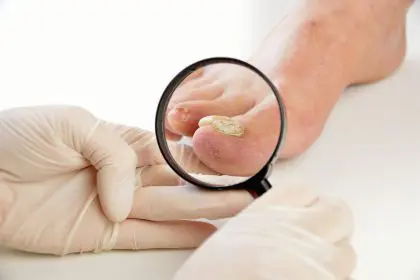Some people bounce out of bed after six hours while you struggle to function with less than nine. If you’ve ever felt guilty about needing more sleep than others, science has vindication for you. Your sleep needs are as individual as your fingerprint, determined by factors far beyond your control.
Your genes determine your sleep blueprint
Sleep requirements aren’t a character flaw – they’re coded in your DNA. Research identifies specific gene variants that naturally increase sleep needs in certain individuals. These genes influence brain activity patterns, circadian rhythm regulation and how efficiently your body repairs itself during rest.
People carrying these genetic variations aren’t broken or lazy. Their bodies simply operate on different biological programming. Just as some people naturally have faster metabolisms or different muscle fiber compositions, sleep needs vary dramatically between individuals based on genetic inheritance.
This genetic diversity explains why sleep advice can’t be one-size-fits-all. Your optimal sleep duration might be someone else’s recipe for exhaustion.
Brain workload affects nightly recovery time
Your brain functions like a high-performance computer that requires regular maintenance. Throughout the day, it processes information, manages emotions and coordinates countless bodily functions. During sleep, crucial cleaning processes activate – removing toxins, repairing neural connections and consolidating memories.
High-demand activities increase recovery needs:
- Complex problem-solving and creative work
- Emotional processing and stress management
- Learning new skills or information
- Social interactions and communication
People in mentally demanding careers or emotionally challenging situations often need extended sleep for their brains to complete these restoration processes. Without adequate time, cognitive function suffers and mental fatigue accumulates.
Emotional healing demands extra rest
Sleep serves as emotional therapy, particularly during REM stages when dreams occur. This phase helps process feelings, reduce stress hormones and regulate mood. After difficult experiences – whether a bad day at work or significant life changes – your body may demand additional REM sleep.
Ignoring these increased sleep needs can trigger:
- Heightened emotional reactivity
- Difficulty managing stress
- Increased anxiety or sadness
- Poor decision-making abilities
Your body knows when emotional recovery requires extra time. Those additional hours aren’t weakness – they’re essential healing.
Sleep debt accumulates with compound interest
Many people operate in chronic sleep deficit without realizing it. Missing an hour here and there seems manageable until the debt becomes overwhelming. Your body keeps meticulous records of lost sleep, eventually demanding repayment through weekend sleep marathons or persistent daytime fatigue.
This isn’t laziness manifesting – it’s your body’s emergency response system. The longer you postpone proper rest, the more aggressive these demands become. Chronic sleep deprivation silently damages your cardiovascular system, weakens immunity and accelerates brain aging.
Catching up on weekends provides temporary relief but doesn’t erase the accumulated damage from weekday deficits.
Modern life disrupts natural sleep patterns
Daily habits significantly impact sleep quality and duration needs. Screen exposure, irregular schedules and constant stimulation force your body to work harder to achieve restorative rest. Even seemingly innocent behaviors create sleep disruption:
Blue light exposure from devices suppresses melatonin production, delaying sleep onset and reducing quality.
Irregular meal times confuse circadian rhythms, making consistent sleep patterns difficult.
Lack of natural light during daytime hours weakens your body’s internal clock.
Minimal physical activity prevents the natural fatigue that promotes deep sleep.
When your body constantly fights these disruptions, it requires longer sleep periods to achieve the same restoration others get in less time.
Hidden health conditions increase sleep needs
Several medical conditions create excessive fatigue that no amount of sleep seems to cure. These often go undiagnosed for years while sufferers blame themselves for being tired:
Thyroid disorders slow metabolism and energy production, creating persistent exhaustion despite adequate rest.
Sleep apnea interrupts breathing throughout the night, preventing restorative deep sleep stages.
Anemia reduces oxygen delivery to tissues, forcing the body to work harder and require more recovery.
Mental health conditions like depression and anxiety disrupt sleep architecture, reducing efficiency.
If you consistently need excessive sleep yet wake unrefreshed, medical evaluation could reveal treatable underlying causes.
Embracing your individual sleep needs
Society celebrates those who function on minimal sleep while shaming those who need more. This cultural bias ignores biological reality – sleep needs vary as much as height or metabolism. Comparing your requirements to others only creates unnecessary guilt and poor health choices.
Instead of fighting your body’s wisdom:
- Track how much sleep leaves you genuinely refreshed
- Create schedules that honor your needs
- Communicate boundaries around sleep time
- View adequate rest as productivity investment, not time waste
Your body’s sleep requirements reflect your unique biology, lifestyle and circumstances. Trust these signals rather than arbitrary standards.
Sleep as revolutionary self-care
In a world obsessed with productivity hacks and grinding harder, prioritizing sleep becomes a radical act. Your need for more rest isn’t shameful – it’s your body’s intelligent response to life’s demands. Some people need more food, others need more water, and you might need more sleep.
The real question isn’t why you need more sleep than others. It’s whether you’re brave enough to give your body what it requires, regardless of social judgment. Your health, creativity and emotional wellbeing depend on honoring your individual sleep needs.
Listen to your body. It knows exactly what it needs to thrive – and that might be an extra hour or two that others don’t require. That’s not just okay; it’s exactly right for you.
















